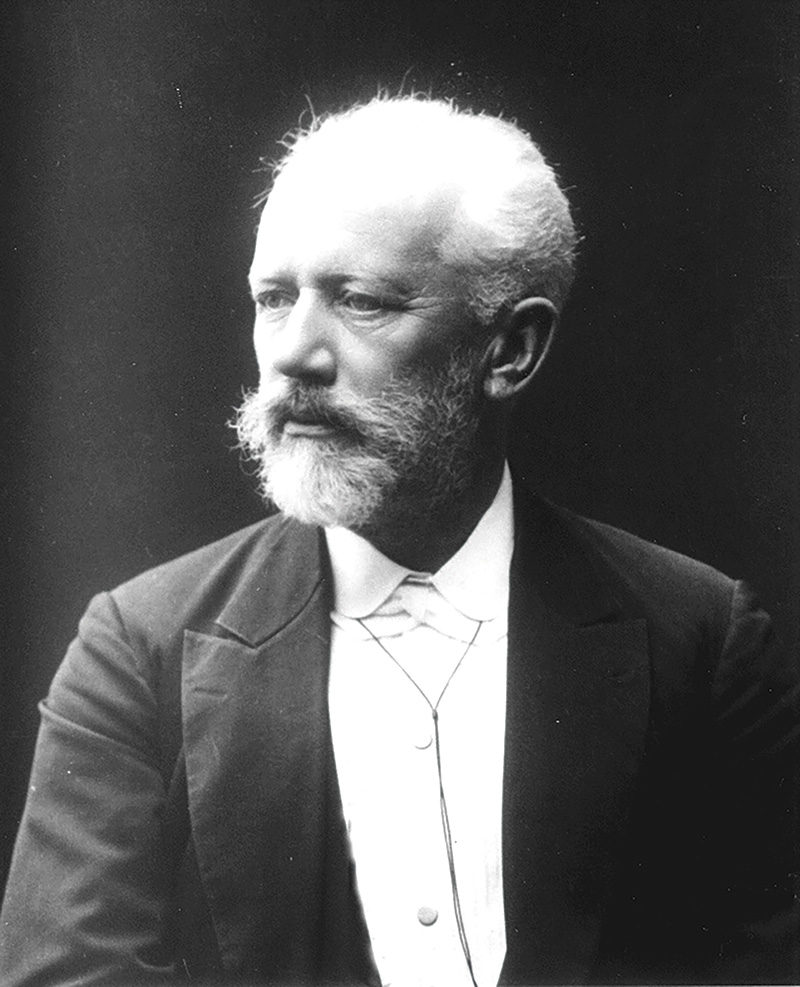Pyotr Ilyich Tchaikovsky

- Born: May 7, 1840 in Kamsko-Votkinsk, Russia
- Died: November 6, 1893 in St. Petersburg, Russia
Symphony No. 5 in E Minor, Op. 64
- Composed: Began in May 1888 and completed August 26, 1888
- Premiere: St. Petersburg, Russia November 17, 1888 conducted by the composer
- Duration: approx. 50 minutes
Once Tchaikovsky’s fame was well established, he felt he should solidify his reputation by making an international tour. He was practically the first Russian composer to make such a trip. He spent the winter months of 1887–88 traveling to Berlin, Leipzig, Hamburg, Prague, Paris and London. During his tour, he was constantly busy and unable to compose or to guard his cherished privacy. But he also enjoyed being the center of attention wherever he went.
When he returned to Russia in May, he moved into a new house in the country. He put behind him the hectic months of his European tour. “I have won a certain amount of fame, but I ask myself again and again, what is it all for? Is it worthwhile? My answer is, a quiet life without fame is infinitely preferable.” Before long, he felt the inevitable need to compose. He created the Fifth Symphony during the spring and summer months.
Tchaikovsky left no detailed program for the Fifth, as he had for the Fourth, written a decade earlier. All that survives is a scrap of paper, with a partial program for the first movement: “Introduction: complete resignation before Fate, or, which is the same, before the inscrutable predestination of Providence. Allegro: (1) Murmurs, doubts, plaints, reproaches, against x x x. (2) Shall I throw myself into the embraces of faith???”
The Fifth, like the Fourth before it and the Sixth after it, was concerned with Fate. But Fate is more personal, less abstract, than in the programs of the other works. Tchaikovsky speaks of his own faith, and he employs the mysterious symbol “xxx,” which he repeatedly used in his diaries when referring to his carefully guarded secret—his homosexuality. Perhaps the “xxx” in the program refers to this proclivity, or perhaps it refers to a particular lover.
Tchaikovsky’s greatest talent—his gift for melody—is nowhere more apparent than in the Fifth Symphony. Is this lyricism what embarrassed the composer, what he meant by the work’s “gaudiness”? As we listen to its beautiful, romantic, lush melodies, we find it hard to understand his dissatisfaction. We need not know the object of this love to feel Tchaikovsky’s passion. It is no surprise that this melody, plus several others from the symphony, have been used for modern-day popular love songs.
—Adapted from Jonathan D. Kramer